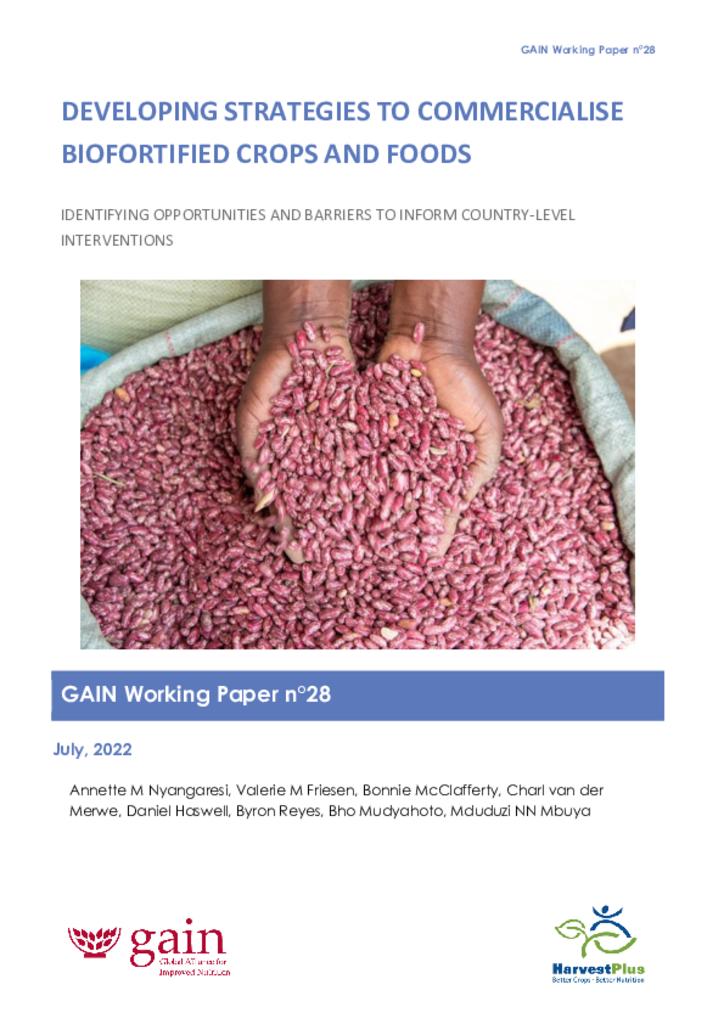Biofortification (or nutrient enrichment) of staple crops has the potential to contribute to reducing micronutrient deficiencies by increasing micronutrient intakes. In 2019, GAIN and HarvestPlus entered a partnership to lead the Commercialisation of Biofortified Crops (CBC) Programme, which aims to catalyse commercial markets for biofortified crops in six countries across Africa and Asia. During the CBC programme inception phase, information on the value chains and their challenges and opportunities for commercialisation were collected for each country-crop combination through literature reviews and third party-led commercialisation assessments. In this paper, we summarise the processes undertaken to identify the potential opportunities and barriers for commercialisation and describe how the findings were used to develop commercialisation strategies for nine country-crop combinations.
Common opportunities identified for commercialising biofortified crops and foods included: availability of competitive biofortified seed varieties to increase seed production, potential to strengthen seed production and distribution capacity through financial and/or technical support, opportunities to establish partnerships with processors and retailers and engage with consumers to increase demand for biofortified foods, and presence of (or potential for) an enabling policy environment to support the commercialisation of biofortified crops and foods. Conversely, common barriers identified included: poor communication of the value proposition of biofortified crops and foods, underdeveloped seed systems, lack of segregation of grains, and poor harmonisation of policies. For each country-crop combination, a programme impact pathway was used to interpret and contextualise the findings, identify the most promising commercial pathway and its binding constraint, and develop a detailed commercialisation strategy to address it.
The evidence review, generation, and interpretation activities enabled the development of nine context-specific commercialisation strategies. Evidence-based assessments linked to a programme impact pathway can strengthen programme design and increase potential for impact.
